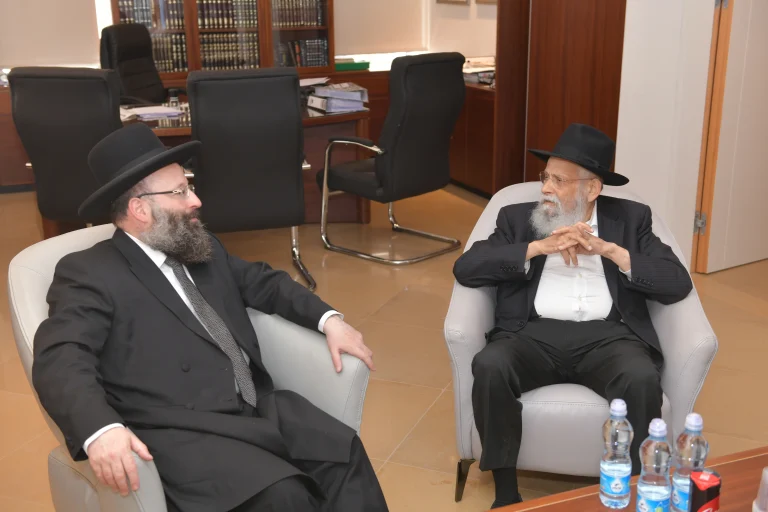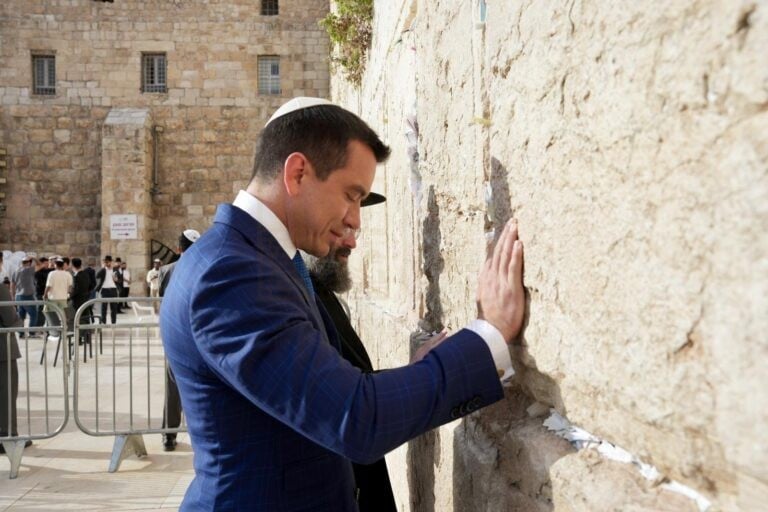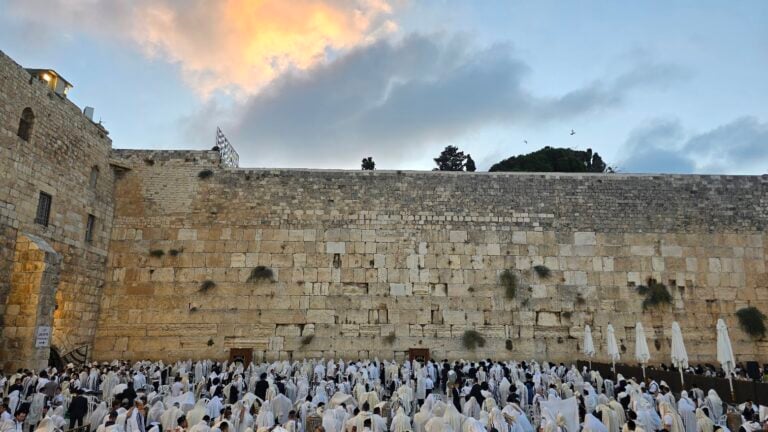Parashat Vayelech – 5783
Rabbi Shmuel Rabinowitz, Rabbi of the Western Wall and Holy Sites
As in previous parashot, this week’s Torah portion of Vayelech mentions the topic of teshuva, repentance. It’s interesting because in the way we read the Torah that is customary today, these parashot are read every year before Rosh Hashana and Yom Kippur when we are focused on repentance and repairing our ways. It wasn’t always so. Until about one thousand years ago, the custom in the Land of Israel was triennial. The Torah was divided into even more than 150 parashot and was read over the course of three or three and a half years. Gradually, the Babylonian custom spread among Jewish communities around the world, and today, in all Jewish communities, it is customary to read Parashat Vayelech on the Shabbat before Rosh Hashana, or – like this year – on the Shabbat after Rosh Hashana called Shabbat Shuva.
Rabbi Jonah of Girona lived in Spain in the 13th century. His classic book, The Gates of Repentance, deals with seeking atonement. He did not gear his words to Jews who were not believers, but to Jews of faith who felt the need to improve themselves. This book is still learned in yeshivas and was of great influence on The Musar Movement (a Jewish ethical, educational, and cultural movement active in Eastern Europe from the mid-19th century).
Rabbi Jonah started his book with the following sentences:
Among the good things which God, may He be blessed, has bestowed upon His creations is the path which He prepared for them to ascend from the baseness of their actions, to escape the trap of their inequities… He has taught them and warned them to return to Him when they sin against Him… [Even] if they greatly sin and rebel and act like treacherous betrayers – He does not close the doors of repentance to them…
(The Gates of Repentance 1)
He sees repentance as an obligation, and even more so – as an opportunity. Man is called upon to turn a new page, repair his ways, and not stay “stuck” in bad habits but to move forward and live a proper life.
One of the principles of repentance is viduy, confession. This is the time of year now when we say selichot (penitential prayers). As part of selichot, we recite a short confession. On Yom Kippur, we elaborate on this and recite a long and detailed confession. But during selichot, we suffice with a short confession that is customarily said every day of the year.
What is this viduy? It is tempting to see it as self-blame, but Judaism does not seek the guilty. Even a person who has acquired bad habits that he is trying to rid himself of is not told to blame himself. The viduy is a call to accept responsibility. By reciting it, we are courageously facing our actions and honestly saying: I have indeed sinned; I behaved inappropriately and I am interested in finding a way to change my ways.
Judaism wants us to take responsibility for our actions and for society. It pushes us to stop stroking our damaged ego and to stop wallowing in self-guilt. The great call stemming from the commandment to repent is: Take responsibility for your fate! Take responsibility for your surroundings! Choose how you really want to live your life!
These days in the Jewish calendar years are great ones. We call them Yamim Nora’im, Days of Awe. They are days of introspection and soul-searching. We just experienced the prayers and shofar blowing on Rosh Hashana and now we approach Yom Kippur – the incredible day when we complete the annual repentance process, the journey of cleansing our soul, and merit forgiveness and atonement. The Shabbat between Rosh Hashana and Yom Kippur offers us the opportunity to stop and pay attention, to sit with our family and examine our interpersonal relationships. Is our marriage healthy and nurturing? Is our parenting fulfilling our expectations? Are we investing the efforts needed to bequeath Jewish heritage to the following generations? These are the questions that should preoccupy us this Shabbat, with optimism and faith, and with gratitude for this opportunity to repair and improve ourselves.









